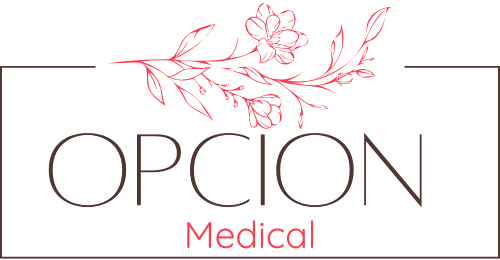Drug utilization is a critical aspect of healthcare that encompasses the appropriate and responsible use of medications. From managing chronic conditions to treating acute illnesses, drugs play a pivotal role in maintaining health and well-being. However, improper utilization of drugs can lead to serious consequences, including overdose. In this article, we delve into the journey from drug overdose to success, exploring the causes, impacts, and strategies for addressing this pressing issue.
Understanding Drug Overdose
What is Drug Overdose?
Drug overdose occurs when an individual consumes more of a substance than their body can effectively metabolize. This can lead to a range of symptoms, from mild discomfort to life-threatening complications. Overdose can involve various substances, including prescription medications, illicit drugs, and alcohol.
Commonly Abused Drugs
Certain substances are more commonly associated with overdose than others. Opioids, such as heroin and prescription painkillers, are notorious for their addictive properties and high overdose risk. Additionally, stimulants like cocaine and methamphetamine, as well as central nervous system depressants like benzodiazepines, can also lead to overdose if misused.
Impact of Drug Overdose
Drug overdose has profound consequences on both individual health and societal well-being.
Health Consequences
The immediate effects of drug overdose can range from confusion and drowsiness to respiratory depression and coma. In severe cases, overdose can result in cardiac arrest or death. Moreover, repeated episodes of overdose may lead to long-term health complications, including organ damage and neurological impairment.
Societal Implications
Beyond the individual level, drug overdose imposes significant societal burdens. Emergency medical services are often strained by the influx of overdose cases, while healthcare systems grapple with the costs of treating overdose-related complications. Furthermore, communities are affected by the loss of productivity, increased crime rates, and stigma associated with substance abuse.
Factors Contributing to Drug Overdose
Several factors contribute to the occurrence of drug overdose, reflecting the complex interplay of biological, social, and environmental influences.
Accessibility of Drugs
Easy access to prescription medications, coupled with inadequate monitoring and regulation, increases the likelihood of misuse and overdose. Similarly, the availability of illicit drugs in certain communities exacerbates the risk of substance abuse and overdose-related harm.
Drug Utilization: Mental Health Issues

Individuals grappling with mental health disorders, such as depression, anxiety, or post-traumatic stress disorder, are more susceptible to substance abuse and overdose. Self-medication may offer temporary relief from psychological distress but can ultimately exacerbate underlying issues and lead to adverse outcomes.
Socioeconomic Factors
Poverty, unemployment, and lack of access to healthcare services contribute to disparities in drug utilization and overdose rates. Marginalized populations, including racial minorities and individuals experiencing homelessness, are disproportionately affected by substance abuse and its consequences.
Strategies for Preventing Drug Overdose
Addressing drug overdose requires a multifaceted approach that encompasses education, intervention, and policy reform.
Education and Awareness Programs
Promoting public awareness about the risks of drug misuse and overdose is essential for prevention efforts. Educational campaigns targeting both youth and adults can provide information about the dangers of substance abuse, as well as resources for seeking help and support.
Access to Treatment and Support Services
Expanding access to substance abuse treatment and harm reduction services is critical for reducing overdose fatalities. This includes increasing availability of medication-assisted treatment for opioid addiction, as well as implementing overdose reversal interventions, such as naloxone distribution programs.
Regulation and Enforcement
Stricter regulation of prescription medications, including improved monitoring of prescribing practices and prescription drug monitoring programs, can help curb the diversion and misuse of controlled substances. Additionally, law enforcement efforts to disrupt illicit drug trafficking networks and prevent drug diversion can mitigate the availability of dangerous substances in communities.
Stricter Prescription Regulations
Regulating the prescribing and dispensing of controlled substances is crucial for preventing drug diversion and misuse. Implementing guidelines for healthcare providers regarding appropriate prescribing practices can help reduce the availability of prescription drugs for non-medical purposes. Additionally, enhancing prescription drug monitoring programs allows for better tracking of patients’ medication histories, identifying potential signs of abuse or overprescribing.
Law Enforcement Efforts
Law enforcement plays a vital role in combating drug trafficking and distribution networks. By targeting illicit drug manufacturers, suppliers, and dealers, law enforcement agencies can disrupt the flow of dangerous substances into communities. Coordinated efforts between local, state, and federal law enforcement entities are essential for effectively addressing drug-related crime and reducing the availability of illicit drugs.
Community Policing Initiatives

Engaging with communities to address underlying factors contributing to drug abuse is a key aspect of enforcement efforts. Community policing initiatives aim to build trust and collaboration between law enforcement agencies and the neighborhoods they serve. By partnering with community organizations, schools, and businesses, law enforcement can develop targeted strategies to prevent drug-related crime and improve public safety.
Success Stories in Drug Utilization
Despite the challenges posed by drug overdose, there are numerous success stories of individuals who have overcome addiction and reclaimed their lives.
Personal Testimonials
Individuals who have overcome addiction often share their stories to inspire others and raise awareness about the challenges of substance abuse. These personal testimonials highlight the journey from addiction to recovery, emphasizing the importance of perseverance, support, and professional treatment. By sharing their experiences, these individuals offer hope and encouragement to others struggling with addiction.
Treatment Success Rates
Evidence-based treatment approaches, such as medication-assisted therapy and cognitive-behavioral therapy, have demonstrated significant success in helping individuals achieve and maintain sobriety. Research studies evaluating the effectiveness of addiction treatment programs consistently show positive outcomes, including reduced substance use, improved mental health, and enhanced quality of life. By investing in proven treatment modalities, communities can support individuals on the path to recovery.
Community Support Networks
Supportive communities play a crucial role in facilitating recovery and preventing relapse. Peer support groups, sober living homes, and community-based organizations offer a sense of belonging and camaraderie for individuals in recovery. By connecting with others who understand their struggles and challenges, individuals in recovery gain valuable social support and encouragement to stay sober.
Rehabilitation and Recovery Programs
Comprehensive rehabilitation programs that address the physical, psychological, and social aspects of addiction have proven effective in helping individuals achieve long-term recovery. These programs may include detoxification, counseling, behavioral therapy, and peer support services.
Support Networks and Communities
Peer support networks, such as Alcoholics Anonymous and Narcotics Anonymous, provide a sense of community and solidarity for individuals navigating the challenges of recovery. By sharing their experiences and offering mutual support, participants in these programs find strength and encouragement to maintain sobriety.
Advocacy and Policy Changes
Advocacy efforts aimed at promoting evidence-based drug policies and expanding access to treatment have led to significant advancements in addressing substance abuse and overdose. Policy changes, such as the implementation of Good Samaritan laws and the expansion of access to naloxone, have saved countless lives and reduced overdose fatalities.
Conclusion
Drug utilization encompasses both the responsible use of medications and the challenges posed by substance abuse and overdose. By understanding the factors contributing to drug overdose and implementing strategies for prevention and intervention, we can mitigate the harms associated with substance misuse and support individuals on the path to recovery. Through education, advocacy, and community collaboration, we can transform stories of overdose into tales of triumph and resilience.
